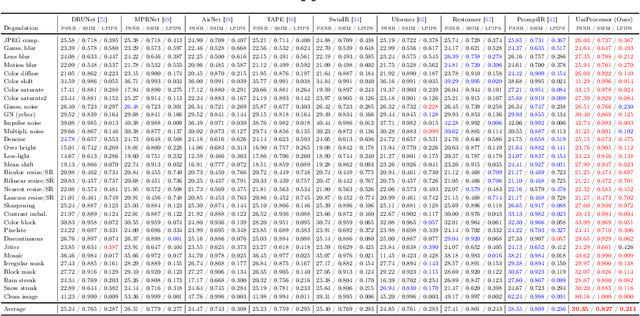UniProcessor: A Text-induced Unified Low-level Image Processor
Paper and Code
Jul 30, 2024



Image processing, including image restoration, image enhancement, etc., involves generating a high-quality clean image from a degraded input. Deep learning-based methods have shown superior performance for various image processing tasks in terms of single-task conditions. However, they require to train separate models for different degradations and levels, which limits the generalization abilities of these models and restricts their applications in real-world. In this paper, we propose a text-induced unified image processor for low-level vision tasks, termed UniProcessor, which can effectively process various degradation types and levels, and support multimodal control. Specifically, our UniProcessor encodes degradation-specific information with the subject prompt and process degradations with the manipulation prompt. These context control features are injected into the UniProcessor backbone via cross-attention to control the processing procedure. For automatic subject-prompt generation, we further build a vision-language model for general-purpose low-level degradation perception via instruction tuning techniques. Our UniProcessor covers 30 degradation types, and extensive experiments demonstrate that our UniProcessor can well process these degradations without additional training or tuning and outperforms other competing methods. Moreover, with the help of degradation-aware context control, our UniProcessor first shows the ability to individually handle a single distortion in an image with multiple degradations.
 Add to Chrome
Add to Chrome Add to Firefox
Add to Firefox Add to Edge
Add to Edge